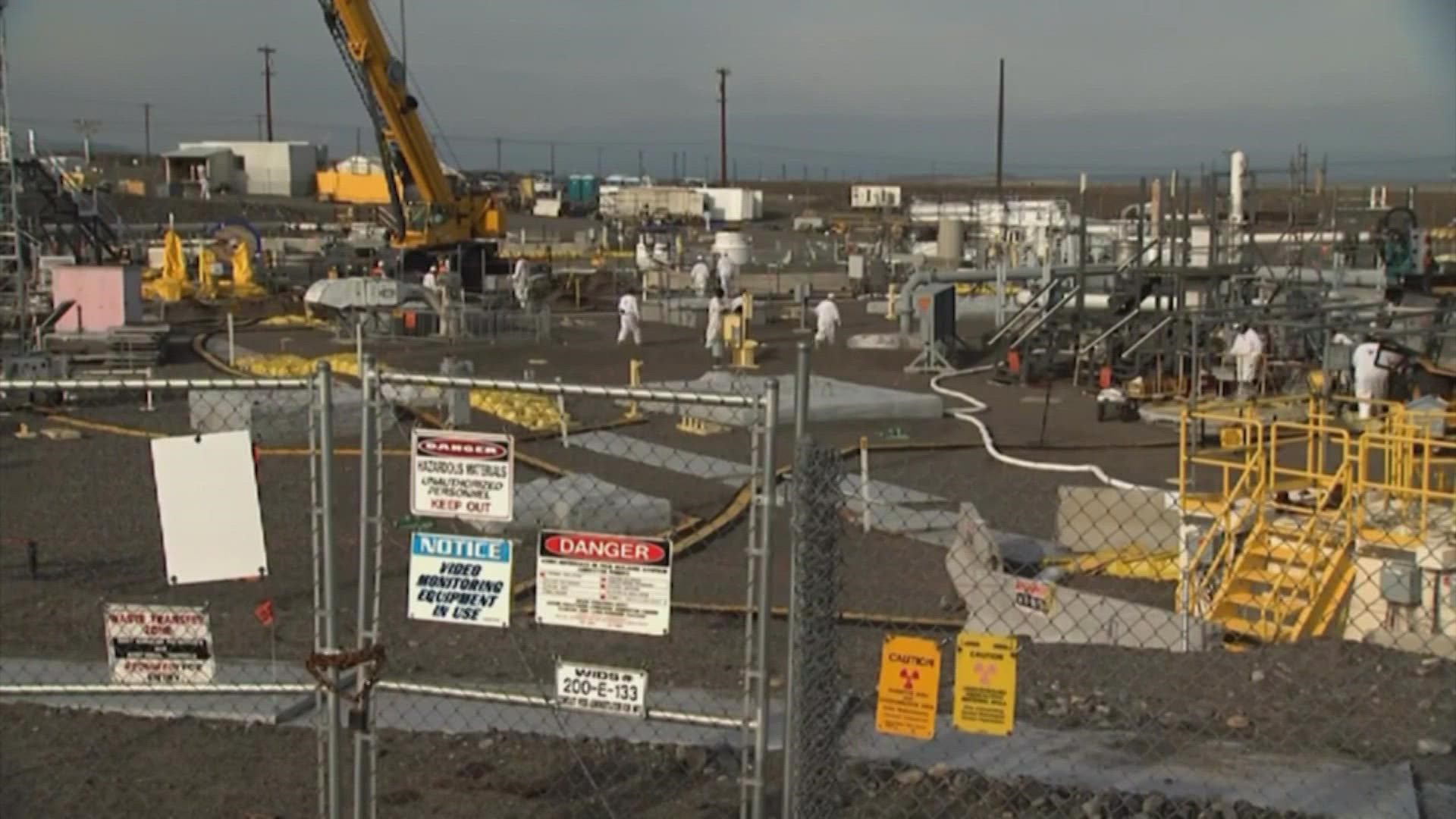RICHLAND, Wash. — A bipartisan group of 60 Washington state lawmakers sent a letter of protest to President Joe Biden on Wednesday, urging him to drop a Trump-era legal challenge to a state law aimed at helping sick Hanford workers obtain benefits and medical care.
“We write to request that you reconsider the United States Department of Justice’s attempts to block an overwhelmingly bipartisan state law to provide industrial insurance coverage to workers made sick on the Hanford federal nuclear site during its multiyear clean-up project,” the lawmakers wrote.
In 2018, the state Legislature passed House Bill 1723 that gives Hanford workers with certain illnesses the presumption that they got sick at work from exposure to toxins such as heavy metals, chemical vapors and radioactive isotopes. This is a similar presumption given to Washington state firefighters who routinely come into contact with hazards such as smoke and dangerous chemicals associated with building and car fires.
Soon after Washington lawmakers passed the Hanford bill, the Department of Justice, under the Trump administration, appealed the law. Federal attorneys argued the law is unconstitutional because states do not have the authority to regulate federal operations or property. Hanford, located near Richland, Wash., is owned by the U.S. Dept. of Energy.
The Washington State Attorney General’s Office (AGO) defeated the appeal. The AGO again prevailed when the DOJ appealed to the Ninth Circuit Court. Now under the Biden administration, the DOJ is making its last chance to gut the bill by asking the U.S. Supreme Court to take up the case.
The legislators said the law is constitutional and necessary to level the playing field for workers at Hanford exposed to unknown poisonous gases that vent from underground storage tanks at the site that contains the deadliest mixtures of chemically contaminated and radioactive liquids in the world.
“Our state residents who suffer from terrible, painful, and debilitating diseases known to be linked to exposure of toxic chemicals were having well-documented difficulties overcoming objections from the federal contractor to access benefits from our state industrial insurance program,” lawmakers wrote. “HB 1723 simply improves the standards for sick Hanford Nuclear site workers to quality for our state industrial insurance benefits.”
The bill came about after a series by the KING 5 Investigators: “Sick and Forgotten at Hanford,” that detailed unfair practices by Hanford’s worker compensation contractor and the U.S. Dept. of Energy. Tactics identified interfered with the workers’ ability to have their worker compensation claims accepted.
Last month, Washington Attorney General Bob Ferguson blasted the Biden administration for its latest attempt to scrap the law. A group of sick workers and their families also denounced the legal challenge at a news conference in Pasco on Sept. 16.
“The workers need this law. They deserve this law. They have worked and paid with their life and injuries to clean up one of the most toxic sites [in the world] and I don’t understand [the challenge to it],” said Bertola Bugarin, whose husband, 70-year-old Abe Garza, is critically ill after several exposures to toxic vapors at Hanford. One of Garza's most serious adverse health conditions is toxic encephalopathy, also known as occupational dementia. “[The Biden administration is] saying workers at Hanford are a commodity and expendable.”
For approximately 40 years, workers at Hanford produced plutonium for the country’s nuclear weapons program. The work left behind the most contaminated worksite in the United States. The mission is currently clean-up only, funded with billions of tax dollars annually.

